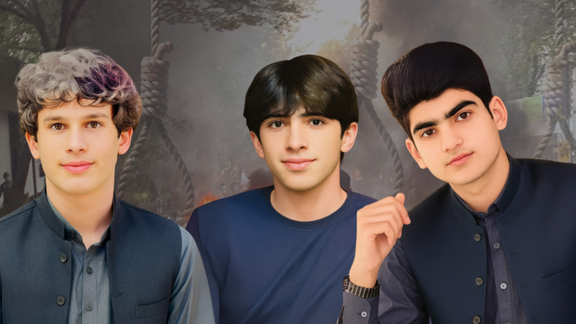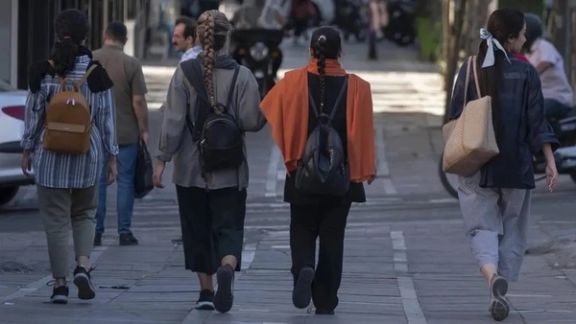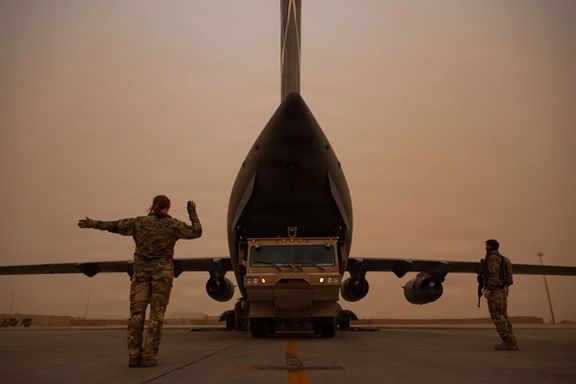Republican Senator Tommy Tuberville introduced legislation that would ban Iranian and Chinese nationals from studying at US universities, arguing students from adversary states pose a national security threat and displace American applicants.
The so-called Student Visa Integrity Act would restrict visas from Iran, cap overall international student enrollment and increase penalties for visa fraud.
"We want to do away with Iran ... nationals getting into this country and learning how to destroy the United States of America and our allies," Tuberville said on Fox News on Friday. “We are funding our own demise.”
Tuberville, from Alabama, serves on Senate committees focused on education and immigration.
Hopes 'shattered'
Even before the proposal, many Iranian students faced steep barriers to studying in the United States. Zanko, a PhD‑bound software engineer living in Iran whose identity Iran International is concealing for his safety, was accepted into a top American university, with classes scheduled to begin in August 2024.
He completed his visa interview last year at a US embassy in a nearby country— a costly, logistically challenging trip from Iran, where there is no US embassy — in hopes of fulfilling his dream.
Zanko says the immigration officer told him his application was under “administrative processing,” an extensive background check. He postponed his admission to August 2025, but his visa appears no closer - a limbo endured by hundreds of other Iranian students.
“Emotionally and professionally, it has been frustrating to know that despite being qualified and committed, external political factors are shaping the course of my future,” Zanko told Iran International.
The situation, Zanko said, “shattered all of my hopes.”
Search for a better life
Leila Mansouri, a US immigration lawyer, told Iran International it has been extremely difficult for Iranians to get a visa.
Even if Tuberville’s bill doesn’t pass, she warned, the government could still block applications by instructing the State Department to stop approvals.
“Behind the scenes they can tell the consulate not to approve the applications like what we saw with the first Trump travel ban that passed in 2017,” said Mansouri, adding that male applicants face especially tough scrutiny.
Much of that additional scrutiny stems from mandatory military service for Iranian men, during which many serve in units affiliated with the Islamic Revolutionary Guard Corps (IRGC) — an organization designated by the US as a foreign terrorist organization. Even routine, non‑combat roles during conscription triggers outright visa denials.
Senator Tuberville has argued that some Iranian students have questionable backgrounds. One example often raised in such debates is the 2017 case of Seyed Mohsen Dehnavi, an Iranian medical researcher turned away at a US airport. Former classmates and activists alleged he was a senior member of the Basij, a paramilitary force tied to the IRGC, and had targeted reformist students. US border officials said his denial was for “reasons unrelated” to the travel ban in place at the time.
Mansouri emphasized that such cases are rare, noting that most Iranian students have no military or security ties. With an existing ban on Iranian military members, including those with past IRGC service, she said this route is already closed.
Iranian students have made significant contributions to American society, Mansouri said, and the US could do a better job of vetting without shutting them out. She described most applicants as “innocent people just trying to have a better life.”
About 10,800 Iranian students studied in the US in 2022–23, up from the year before but still below the 2017–18 peak of nearly 12,800. In 2024, only 2,166 student visas were issued to Iranians — down 42% from 2023 — with denial rates climbing to 41%.
'Collective punishment'
The obstacles deprive the United States of Iranian talents and isolates an entire generation of Iranians, said Siamak Aram, a Sharif University graduate and active member of the Iranian academic community in the US.
“This proposal amounts to collective punishment. It fails to distinguish between the Iranian people and the oppressive regime they are fighting against,” Aram told Iran International.
“It inadvertently aligns with the goals of the Islamic Republic. So-called ‘Supreme Leader’ Ali Khamenei has long sought to limit Iranians’ interaction with the outside world, especially through academic and cultural channels.”
The human impact has also been highlighted by Iranian-American tech entrepreneur Hadi Partovi, co-founder of Code.org, who posted on X on June 30 that he and his twin brother Ali “received hundreds of messages from Iranian students who were accepted into PhD programs in the USA, only to have their legal immigration papers rescinded.”
Partovi, whose family immigrated legally in 1984, wrote, “Iran’s most precious resource is its talent, not its oil,” and pointed to relatives such as Uber CEO Dara Khosrowshahi as examples of how admitting ambitious students can translate into job creation and economic growth.
“Surely America can find a way to protect its security and its borders while also preserving the values and ideals that make it great,” he said.
The surge in visa denials — many issued after nearly a year of administrative processing — comes amid a broader immigration crackdown in the United States.
For Iranian students like Zanko, delays and silence from authorities have been compounded by Section 212(f), a presidential authority typically invoked for national security, applied this spring. Many fear Tuberville’s bill would add yet another hurdle, effectively formalizing a ban on Iranian students.
Neither the US State Department nor Tuberville’s office immediately responded to an Iran International request for comment.














